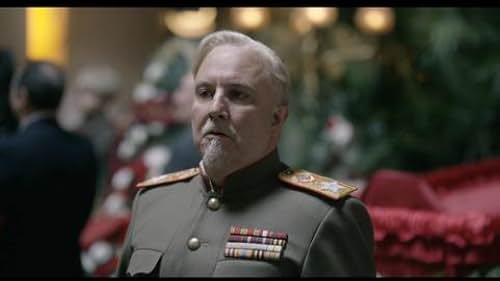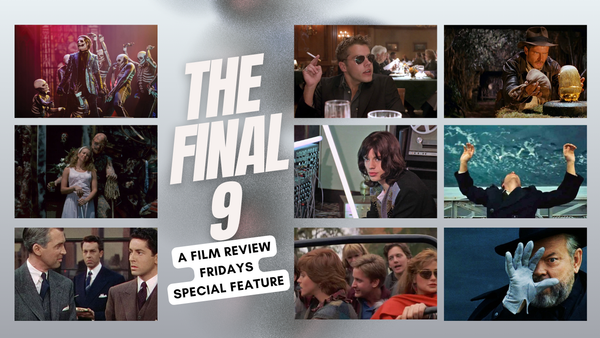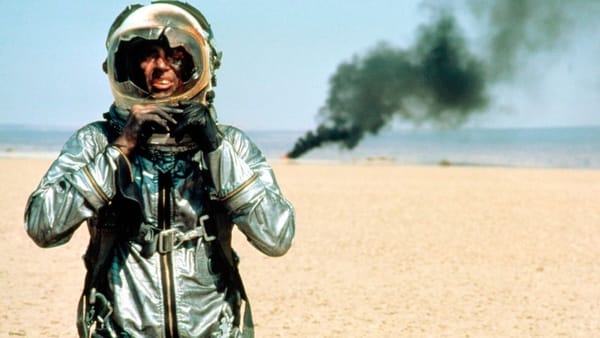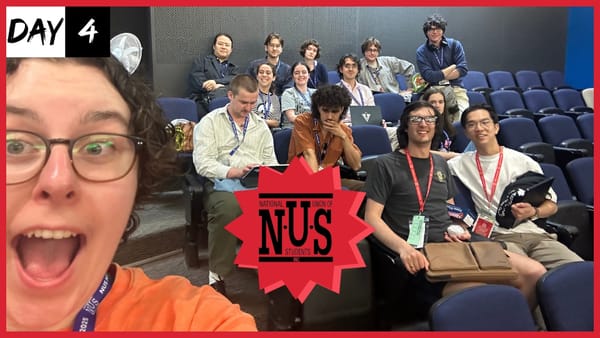The Death Of Stalin - Film Review Friday

The Death of Stalin (2017) dir. Armando Iannucci
“I'm off to represent the entire Red Army at the buffet. You girls enjoy yourselves.”
In early 2018, a mere two days before its scheduled release in Russia, Armando Iannucci’s bleak, dark comedy, The Death of Stalin, had its distribution certificate withdrawn by Russia’s culture ministry. The film was labelled a “disgusting” and “despicable” attack on the great Soviet leaders who conquered fascism, it was accused of being part of a wider plot to destabilise Russia, and was called “boring”, “repugnant”, “vile”, “insulting”, and “bad”. It remains banned in Russia to this day, yet I can’t help but feel as though the mass murdering titular tyrant would have absolutely loved it.
The year is 1953, and the Soviet Union has been under the iron thumb of totalitarian dictator Joseph Stalin (Adrian McLoughlin) for 28 years. It is a nation gripped by fear – millions have died, millions have been deported, and nobody is safe from suspicion under the eye of the increasingly paranoid leader. Ensuring this fear is the Soviet secret police, the NKVD, headed by Lavrenti Beria (Simon Russell Beale at his absolute best), who have a habit of disappearing people the regime deems a threat or simply unwanted. In one particularly horrifying scene early in the film, Beria lists increasingly complex ways in which his NKVD officers should arrest and murder an array of citizens as though it were little more than a grocery list for a meal he was eager to make.
The Death of Stalin opens in the midst of this terror. The great purges of the 1930’s are over, the Great Patriotic War has been won, and the people of the Soviet Union have grown tired. Moscow is a city coated in a perpetual layer of gloom, with a sky that’s always overcast and streets that are always damp. Yet there are rays of light that break through the drab greyness. One such ray is Radio Moscow’s performance of Mozart’s Piano Concerto No.23 that echoes through the city in a haunting, yet strangely beautiful contrast to omnipresent NKVD violence. The performance ends, the audience applauds and Radio Moscow director, Comrade Andreyev (a brilliantly nervy Paddy Considine), receives a phone call from Joseph Stalin who requests a recording of the night’s performance. There isn’t one. The ensuing chaotic panic perfectly sets the tone for the film that follows.
Adapted by Iannucci, David Schneider, Ian Martin and Peter Fellows from a pair of French graphic novels penned by Fabien Nury and inked by Thierry Robin, The Death of Stalin is a comedy that pokes fun at evil, and laughs at tragedy. The screenplay is loaded with wit, and humour underpinned by an unavoidable darkness that permeates the film like a virus. The primary characters are all varying degrees of evil, vain sycophants who squabble like children on a playground – it’s cathartic to see these malevolent historical figures as petty and pathetic individuals who, in many cases, are wholly unqualified for the titles they hold.
While the script is truly excellent, it’s the cast who are the true standouts in The Death of Stalin. Comprised primarily of English and American actors, there’s not a Russian accent in sight, and while this has been levelled as a criticism of the film, I think it’s all the better for it. There’d be few things more distracting than seeing Steve Buscemi, Michael Palin, or Jason Isaacs arguing in an accent that turns their w’s into v’s. Every performance in this film is worthy of praise, from the extra woman eating pickled eggs, the guards who hear Stalin drop from a stroke but are too scared to investigate (an event that truly happened), and all of the main players.
Buscemi as Nikita Khrushchev is as close to a protagonist as the film has, beginning the film as a buffoonish object of comedy relief (tomato in pocket = funny) before shifting into a bloodthirsty schemer ready to shake up the central committee and rise to the top spot as Stalin’s true successor. Andrea Riseborough as the traumatised Svetlana Stalina, Jeffrey Tambor as the vain Malenkov, Simon Russell Beal as the slimy and evil Beria, and Michael Palin as the pathetically kindly Molotov who is out of place in this world of deception and is easily manipulated are all absolutely stellar. Rupert Friend is also excellent as Stalin’s son, Vasily, a deadbeat alcoholic who tries to coast through life off his father’s name. However, the absolute standout of the film is Jason Isaacs as the heavily Yorkshire-accented Georgi Zhukov who dominates every moment he has on screen.
The Death of Stalin isn’t entirely historically accurate – no filmic history truly is – and it isn’t trying to be. Iannucci makes no claim that this is a documentary designed to accurately convey the complex shifts in power after the death of the most successful dictator of all time, it’s a comedy that makes fun of him and the people who tried to rise in his place. If there’s one thing that The Death of Stalin leaves the audience with, it’s an assertion that laughter is a most effective tool against evil, that it is always just to make fun of dictators, to laugh at the power-hungry vultures who surround them, and the systems that enable them.




